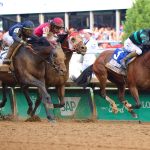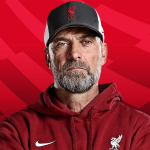“There is the opportunity for me to engage with individual states and territories, on a bilateral crisis, if we believe we can create additional capacity,” Mr Morrison said today.“But that is not an indication that that will occur.”Mr Morrison said the government’s first priority was the health and safety of people within Australia, followed by getting Australians home as soon as possible.He said Australia had put on additional 20 repatriation flights and was looking at providing additional capacity to get more people home.Queensland Premier Annastacia Palaszczuk was set to propose that mining camps, such as one in Gladstone, could be used to quarantine returning travellers.But Mr Morrison said he still had not yet seen the proposal.“We still are seeing one per cent of all international arrivals coming into Australia being diagnosed with COVID-19, which reinforces the importance of our quarantine arrangement,” he said.
Meantime, Finance Minister Simon Birmingham told ABC: “National cabinet had agreed to review the cap in mid-February, so if such decisions were made to today, it would be bringing it forward”.“I hope the states and territories do consider ways to do so – they made this decision to reduce the cap on the basis of concerns about the UK strain and other new variants.”Senator Birmingham said the government wanted to ensure quarantine systems were safe from new strains and international traveller numbers could be increased as quickly as possible. He acknowledged that some of the almost 40,000 Australians wanting to return from overseas were facing challenging circumstances and said the government was working on repatriation flights to get vulnerable people home.FEARS EMIRATES RESTART WON’T GET STRANDED AUSSIES HOMEAustralians stranded overseas have welcomed the resumption of Emirates flights, but say nothing will change until government caps are dramatically increased.More than 40,000 Australians remain stuck overseas, with the national cabinet to review flight caps early next month.Some Australians have been waiting more than a year to get on flights which had been repeatedly bumped, as hotel quarantine spaces in Australia have been restricted.And despite the return of Emirates flights, announced early on Friday, the first available to book on travel websites on that airline were from March, starting at almost $9000.Earn Ben-Avraham, who is stranded in Leeds in the north of England, said: “The Emirates flights coming back are not going to make any difference. “Flights keep getting cancelled and the planes are going back with 35 to 40 passengers.”He said both Liberal and Labor must do more to increase the flight caps, and he urged the government to consider offering Newstart payments to people stuck overseas.“People in Australia had Newstart payments doubled through Jobseeker, some of those extra payments could be given to Australians overseas,” he said.
The Federal Government has offered some financial assistance to people in hardship, with loans of up to $2000 per person.However, it is understood that a condition of Newstart payments is that a person is resident in Australia.New South Wales, Western Australia and Queensland slashed their caps in half in January because of fears of a new strain spreading in the UK.The decision led to Emirates last week cancelling flights to Melbourne, Sydney and Brisbane indefinitely. But the company made a shock U-turn, announcing they would be back in the skies to Australia as early as January 25. “The pandemic has made international flying incredibly challenging and the dynamic restrictions and requirements implemented by the different state authorities in Australia had added complexity and burden to our operations,” an Emirates statement said.
Sydney flights will return on January 25, Melbourne on January 26 and Brisbane on January 28, while Dubai to Perth flights were never cancelled.“We regret the inconvenience caused to our customers in the period where we had to temporarily suspend our services,” the airline added.The Australian Government has arranged 20 additional Qantas flights in the next two months until March 31 to get people back home. The first two of those flights were sold out in 15 minutes when the Department of Foreign Affairs and Trade emailed out the offer early on Wednesday morning London time. Those flights will be directed to Darwin, which has agreed to take an extra 350 passengers a fortnight at its Howard Springs mining camp, and Tasmania.Victoria cancelled its hotel quarantine during its second wave last year, which has caused a backlog of people wanting to return home.
NED-3019-vaccine-rollout
VICTORIA OPENS BORDER TO SYDNEY SUBURBSMost residents in Western Sydney will be able to enter Victoria again, as NSW continues to “mop up” after a coronavirus outbreak in the area. As of 6pm on Friday night, all but one local government area in NSW will be able to enter the southern state, with only Cumberland continuing to be locked out. Premier Daniel Andrews told reporters health authorities he had been reviewing the situation “every single day” to evaluate what steps could be taken. “Those steps, of course, have to be safe,” he said. “I’m very pleased that, following further intensive work by our public health team, the chief health officer has recommended to me, and the cabinet have agreed to the following changes. “From 6:00pm tonight, all but one of the Greater Sydney LGAs that are currently red will become orange. That is to say, with the exception of Cumberland, those nine shires, or local government areas – Blacktown, Burwood, Canterbury Bay, Canterbury Bankstown, Fairfield, inner West, Parramatta and Strathfield – they’ll all move from red to orange. “Which means people will be able to travel to or from but they must test within 72 hours. Then they’re free and clear once they get a negative test result.”Residents in all local government areas in NSW, apart from Greater Sydney, Wollongong and the Blue Mountains will now be able to travel freely into and out of Victoria, as they become green zones.All of Greater Brisbane will also be reclassified as a green zone.
Victorians stuck in the greater Sydney red virus zones have been unable to return home for weeks after Victoria slammed its border shut at the start of this month following the Northern Beaches outbreak.The Victorian government was hit with hundreds of urgent applications from residents who needed exemptions to return home for medical reasons.Just last week, Victorian authorities classified regional NSW and the central Coast as orange zones under a new traffic light permit system.The permit system operated on red, orange and green risk zones of travel.
Mr Andrews also announced changes to Victoria’s restrictions on home gatherings. Residents will be able to gather in groups of up to 30 at homes from 11:59pm on Friday.”Again based on public health advice and this, now the 16th day of no community transmission, we are reintroducing the pre-New Year’s Eve gathering at homes limit,” he said.“Any gathering needs to be COVID-safe, whether at your home or outside. We have to take these seriously. The cap, from 11.59 tonight, will go back to 30.”Unfortunately, this easing does not apply on New Year’s Eve, when gatherings will be reduced to 15.The Premier said the decision had been made “out of an abundance of caution, for everything we’ve built”.NEW WARNING FOR AUSTRALIAN UNIVERSITIESAustralian Universites could take a hit of up to $10 billion as a result of international border closures as they are warned it will be “very difficult” to get large numbers of foreign students back on campus.Education Minister Alan Tudge told The Australian: “It’s going to be very difficult. “Our priority is ensuring that Australians can get home and Australians are kept safe from the virus.”“Obviously we’ll keep a close eye on this week-by-week and month-by-month and at all times guided by the health advice.”His warning comes after national cabinet moved to tighten international arrival caps in early January, which dashed hopes of overseas students returning in significant numbers.The education sector expects an $8 billion loss in tertiary fees in semester one alone if no international students are allowed into Australia, with the figure rising to $10 billion if there are no foreign students this year, according to The Australian.
NED-2826-Australias-Vaccine-Rollout
BRISBANE UNMASKED AS RESTRICTIONS EASEQueensland has seemingly dodged a potentially catastrophic outbreak of COVID-19, and Brisbane residents are on Friday breathing easier as they wake to a massive wind back of restrictions. As of 1am on Friday, masks are no longer mandatory, dancing is allowed once again, gathering restrictions have eased, and visitors are allowed back into hospitals, aged care facilities, prisons and disability accommodation. For the last 11 days, residents of Brisbane, Logan, Ipswich, Redlands and Moreton Bay have been subject to strict restrictions following a three day lockdown. It comes after a hotel quarantine worker from the Hotel Grand Chancellor tested positive for the highly infectious UK strain of COVID-19, and was unknowingly infectious in the community for three days.
Premier Annastacia Palaszczuk and the state’s chief health officer were so concerned about what an outbreak would do to Queensland they locked the city down, before implementing a mask mandate and other restrictions. Thursday marked 14 days since the last case of COVID-19 was in the community, and Dr Jeannette Young said she felt “comfortable” that Brisbane had dodged a bullet. Ms Palaszczuk said Queensland had fought hard and fought fast and deserved to be rewarded for their efforts. “Brisbane was Australia’s first battleground for this new strain,” she said on Thursday.“A short, sharp shutdown was successful in keeping the movement of people and the virus to a minimum.” “We have come through this together, we have come through it stronger, and we’ll continue to do that every single day.”
NED-1859 State of our borders
NSWThere are no restrictions around travelling to or from regional or rural NSW, or other areas of NSW.However, NSW Health currently recommends delaying non-essential travel within NSW, especially between Greater Sydney and regional and rural areas.There are no permits required for people entering NSW from interstate.
FACE MASKS
In Greater Sydney (including Wollongong, Central Coast and Blue Mountains, face masks are mandatory in certain indoor settings. A $200 on the spot fine will apply if you do not comply with the requirements to wear a face mask.Children aged 12 and under are exempt but are encouraged to wear masks where practicable.Places where face masks must be wornYou must wear a face mask indoors when you enter or work at*retail or business premises that provides goods or services to the public including*supermarkets*shopping centres*banks*post offices*hairdressers.*residential aged care facilities (visitors, not residents).Premises that are used for the purpose of providing health services are not retail premises or business premises.Face masks are also mandatory when you are using public transport or are a passenger in a taxi or rideshare vehicle when you are waiting at a public transport waiting area (such as a bus stop, train platform or taxi rank) for all staff in hospitality venues and casinos for patrons using gaming services.SOUTH AUSTRALIATravellers are not permitted to travel to South Australia from the Greater Sydney, Central Coast and Wollongong areas unless they are an essential traveller or an exempt person.From January 17, travellers from the Greater Brisbane area do not have to undergo 14 days of self-quarantine upon arrival in South Australia but must submit to a COVID-19 test on day 1, 5 and 12. VICTORIAVictoria has reopened its border to the majority of Sydney.The traffic light-style system permits travel from “green zones” (no quarantine required) and “orange zones” (travellers required to be tested for COVID-19 within 72 hours of arrival and isolate until they receive a negative result).People in Brisbane are allowed to travel to Victoria without needing to apply for an exemption under a relaxation of the state’s border restrictions.
NORTHERN TERRITORYAll arrivals to the Northern Territory (NT) must: fill in a Border Entry Form and complete 14 days of mandatory supervised quarantine at their own expense, if they have recently been in an active declared COVID-19 hot spot. This includes children returning from a hotspot.
QUEENSLANDMost people can travel freely to Queensland unless they have been in a COVID-19 hotspot or in any part of NSW. Road border checkpoints are in place and border passes are required for anyone entering Queensland from NSW.
WESTERN AUSTRALIAInterstate travel is permitted into and around WA, depending on where travellers have come from and who they’ve had contact with in the 14 days prior to travel. They are also subject to conditions, including completing a G2G PASS declaration prior to entry.The ACT, NT, SA and Tasmania are deemed very low risk. Travellers from Victoria are required to self-quarantine for 14 days at their own expense. Queensland and NSW travellers — deemed medium risk — must wear masks, self-quarantine for 14 days and will be tested within 48 hours of arrival. TASMANIATravellers from the Greater Brisbane region as well as Greater Sydney, the Northern Beaches and Wollongong must self-quarantine on arrival for 14 days. AUSTRALIAN CAPITAL TERRITORYThe ACT will lift its travel ban for Sydney’s northern beaches residents on Tuesday. Prior to this, non-ACT residents have been banned from entering the territory if they were in a COVID-19 affected area of NSW.
Powered by WPeMatico






